It isn’t often that our first commercial screenprinting jobs are documented. Usually we get into this business in a sort sideways move. We help somebody out or make shirts for ourselves and never really think it will turn into a business. Somehow lo and behold eventually we end up finding ourselves in the business. I just received photos of my first “commercial” printing. But first a bit of history…
The first time I ever screenprinted some shirts was with my friend Peter Brown during my first year at college. I helped him print some Mr. Natural shirts, an R. Crumb character. I think we printed 12 of them and gave them to friends in our dorm. I remembered them being red ink on yellow shirts, but my memory might be influenced adversely by uh,…ink fumes. Below is the second shirt printed as well, Bozo, as in the Firesign Theater’s “We’re All Bozos on this Bus.”
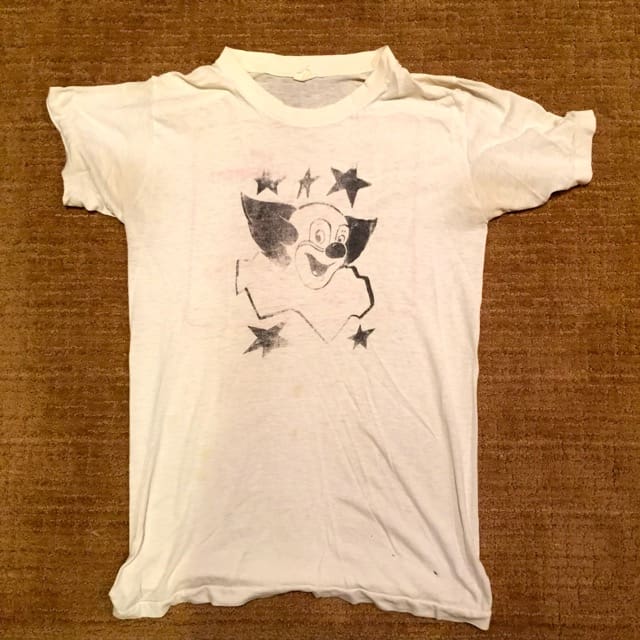
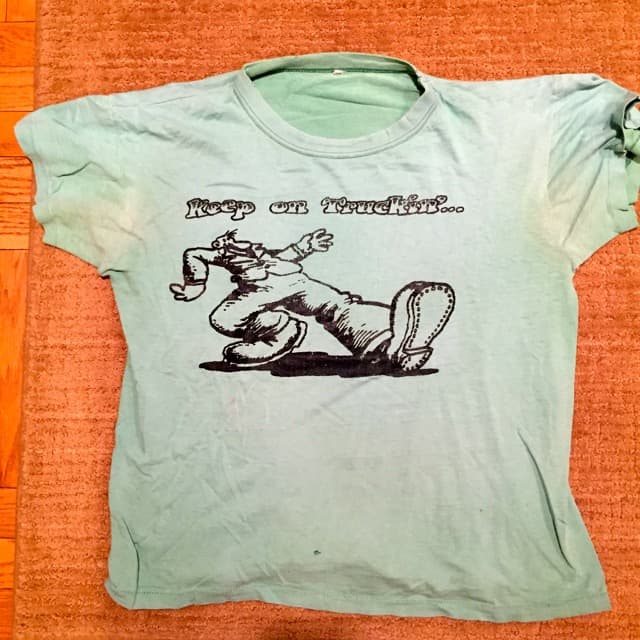
The third time I printed t-shirts it was with a couple friends and it was shirts that said, “Save Old Bio.” It was part of a campaign to stop the demolition of a beautiful building on the Colgate University campus. The building was constructed in 1884. Oswald Avery studied science in that building. Avery discovered that DNA was responsible for the transference of genetic information, which ranks with one of the greatest scientific discoveries of the 20th century. That’s some history there.
The shirts were not exactly beautiful, but we cranked them out in an art studio in “Old Bio” and soon everyone was wearing them around campus. Even more amazing was that Old Bio was saved and still stands. Not only is it part of what got me into screenprinting, it also was part of what also turned me to activism. I did not remember how important the shirts were in the campaign until I read in wikipedia today, “It (Old Bio) was slated for demolition in 1975 but students protested around the rallying cry “Save Old Bio.” T-shirts for protesters to wear during protests were printed in the “Old Bio” art studios. The protests were successful and the building was preserved.” Hell yeah.
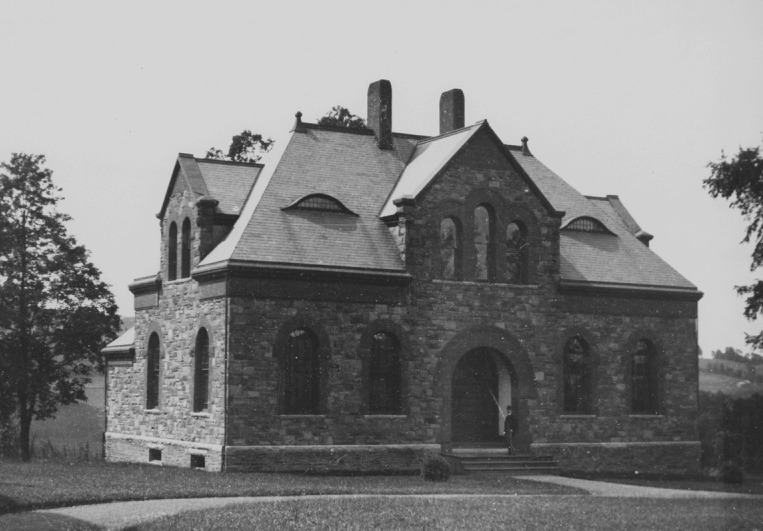
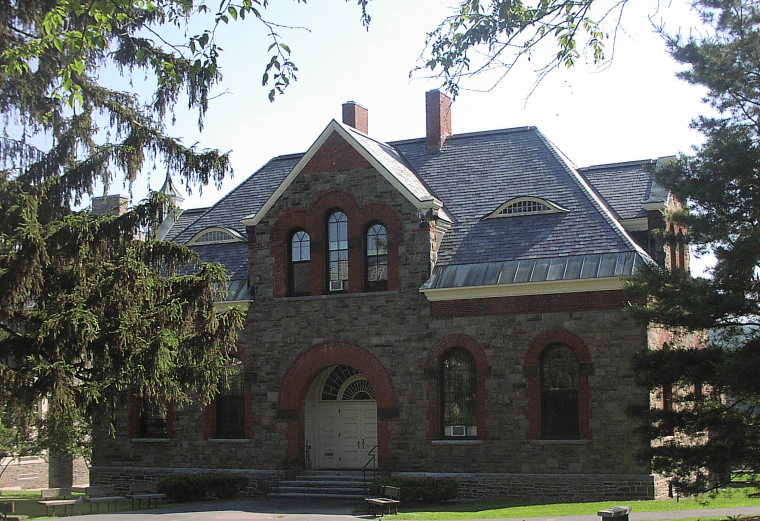
Not long after graduating I helped another friend print a “commercial” job. It was for a local family farm so that farmers could wear the shirts while they sold corn at their roadside stand. Amazingly I found out that one of my friends still has his “Fed on Zinke’s Corn” shirt. We hand cut the stencil and crudely printed it and my friend Lago got paid top dollar for the shirts I am certain. Not only did this further my learning of how to screenprint, I eventually became an activist on farm issues and I run the merchandise program for Farm Aid at their annual concerts. Are you catching a theme here?

Lago and I and some other friends of mine started a kind of crazy event called the “Nantucket Spaghetti Festival.” Part of the annual event was that we would print commemorative t-shirts right at the site. Folks would bring their own shirts and we would set up and print them right then and there. The pasta fest was once held out in the woods of Western Massachusetts at Robert Brown’s place. He was the eccentric father of my friend the artist Ken Brown’s (no relation to Peter Brown mentioned earlier.) The shirts we printed that day still exist.
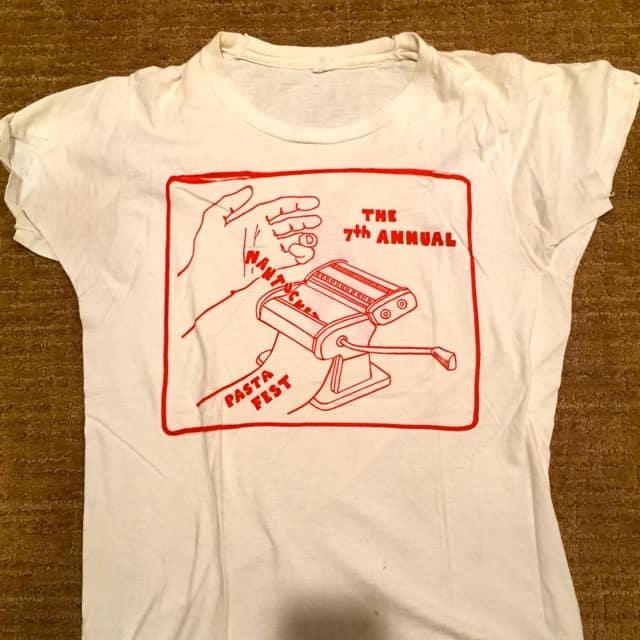
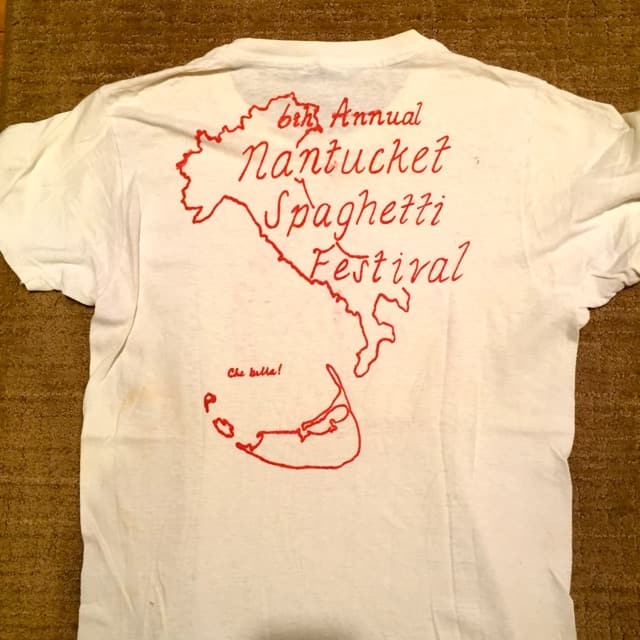
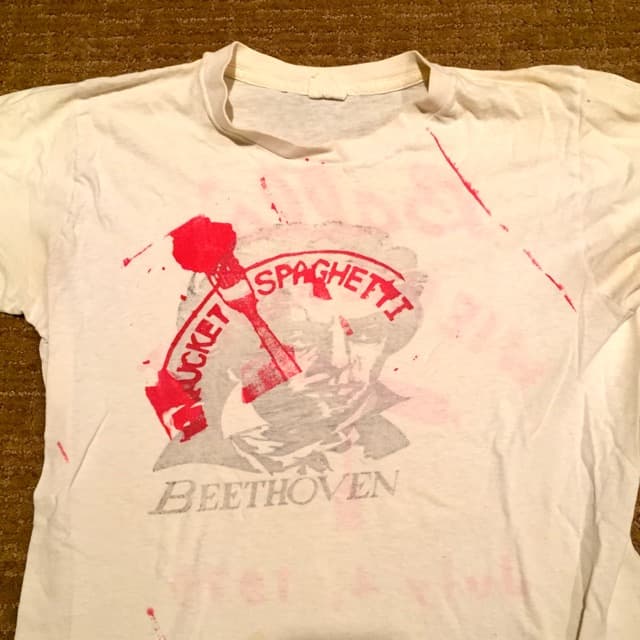

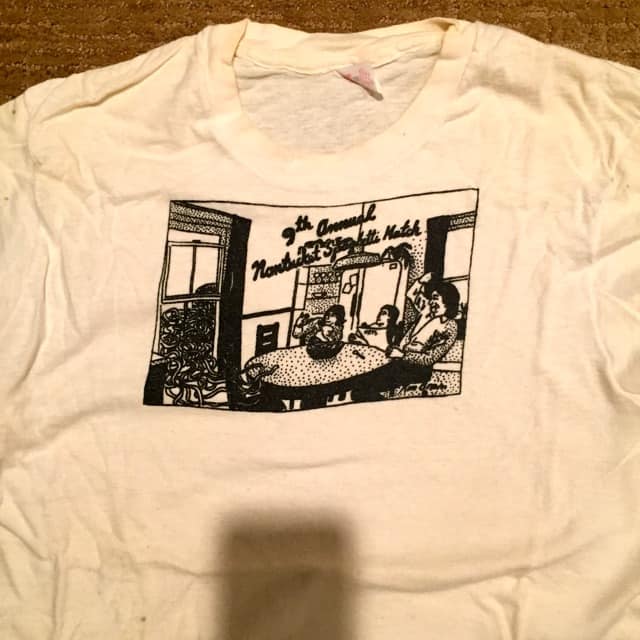
Some time afterwards Ken Brown said, “hey Biskit (my nickname) you know how to print shirts, I saw you print them at the pasta fest. I have some designs I want to try out. Can you print them?” Ken at that time had a pretty successful little business selling postcards of his drawings and photographs. His idea was to add t-shirts to the mix. He took three designs out of a Johnson Smith novelty catalog. The weird gags in there were illustrated with awesome crude drawings. We made screens and printed up the drawing for face paint, the drawing for an unbreakable egg and the drawing for a fake ice cube with a fly in it.
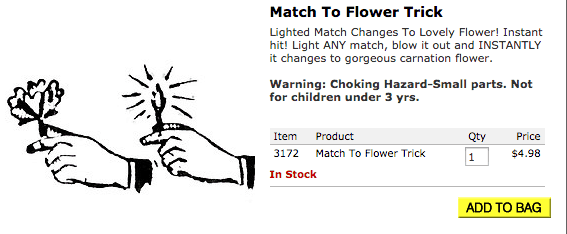
So the first job we printed was the face paint illustration. Ken was also a photographer and he took his camera everywhere, including that day taking it to my basement. He got photos of the first shirts hanging on the line to dry.
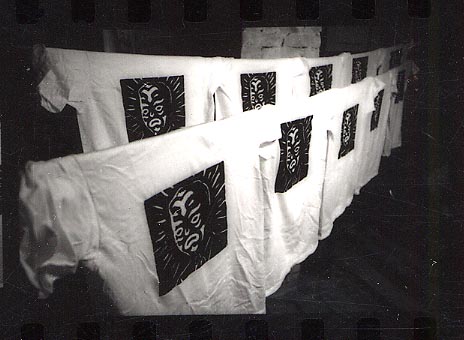
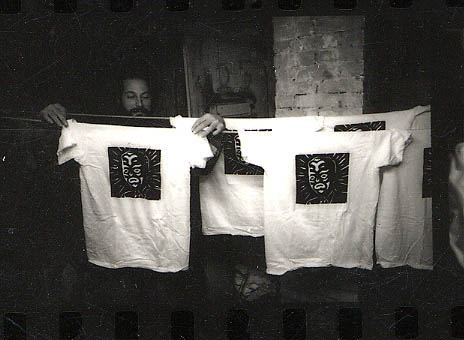
I used a Speedball kit to get the screens ready and print the job. I handmade a screen and for some reason I still have that screen.
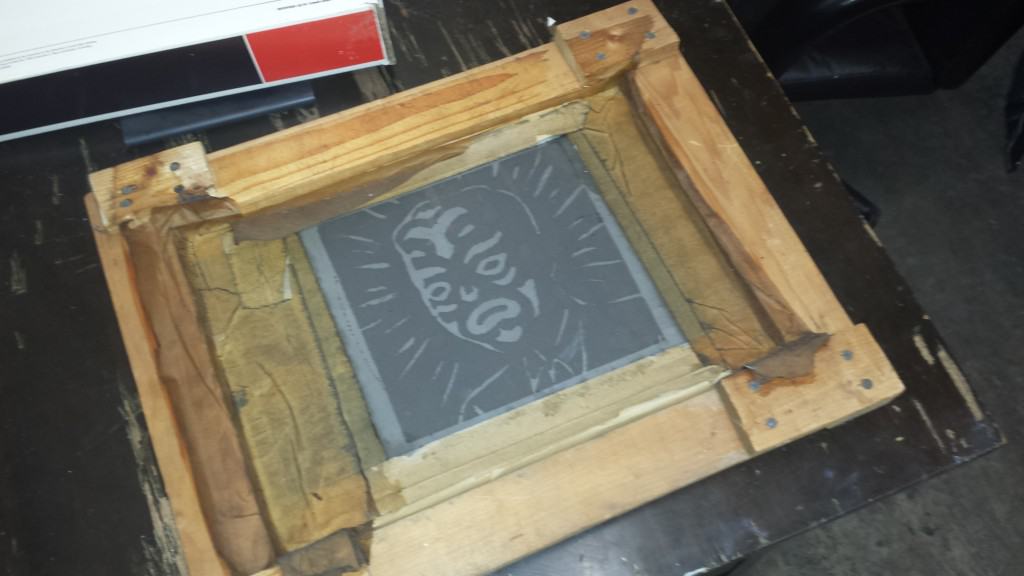
I can’t remember how I made the film. My exposure “unit” was that I placed the film on top of the screen and then putting a piece of glass on top of that to insure good contact. My exposure lamp was a 150 watt incandescent bulb and a pie plate. My exposures took 45 minutes (exposures currently are more like 45 seconds) and then I washed the image out with a garden hose out in my driveway.
I had a large flat board that I printed on. I would put single ply cardboard in all the shirts I was going to print. Then by eye I would put the screen down on a shirt and hold it with one hand and with the other hand I would print with the squeegee. I would then flood the screen and lay the screen on an open box next to me. I would pick up the shirt and shake out the cardboard and place the shirt on a clothesline in my basement (outside when the weather was nice.) It was pretty quick drying ink so in order not to clog the screen I had to work very quickly. This is how I printed that first shirt for Ken Brown and how I ended up printing thousands of shirts in my basement. I didn’t have a press. I didn’t even have hinges. I just put the image on by eye. I also didn’t know about shirts that you could buy in printers folds. I went down to Dainty Dot hosiery (now some damn yuppie condos) in Boston and bought Hanes undershirts. They were three to a pack and I ripped the bags apart. In short order my basement was full of plastic bags and piles of small cardboard inserts.
So back to the Johnson Smith shirts for Ken. I took them out to one of his best postcard customers, a shop on Nantucket called Offshore Trading. The owner said, “I don’t really like these shirts that much, but if you print Ike & Tina and Steve & Idi, I will buy 150 of each of them.” I was in business.
To explain, Ike and Tina Turner were a soul group from the 60’s. Ken drew a cartoon which substituted President Dwight D. “Ike” Eisenhower for the soul man.
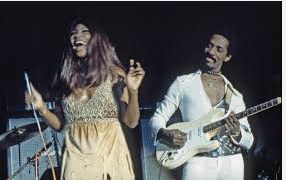
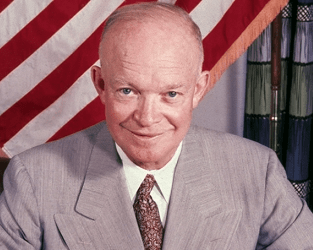
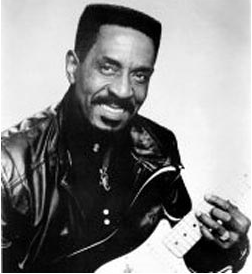
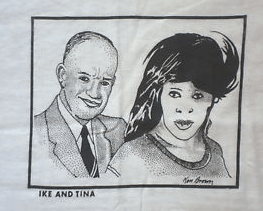
Steve and Eydie was a cheesy very white lounge act of Steve Lawrence and Eydie Gorme. Ken drew the couple as Steve Lawrence and Idi Amin, the brutal dictator of Uganda.
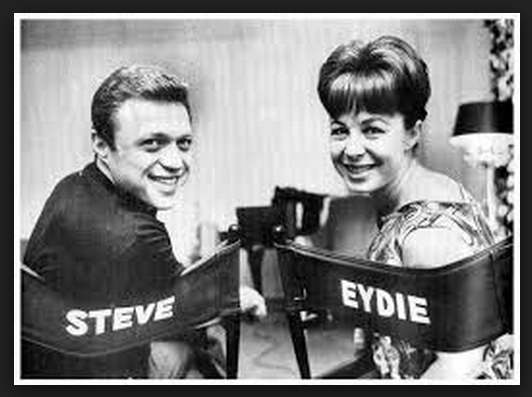

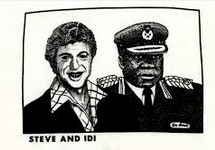
I printed those shirts for the Offshore Trading Company. There were 150 of each of Ken Brown’s couples. Little did I know that I was on my way to printing millions of shirts.
A small footnote was that I had to sell off the Johnson Smith “Facepaint” shirts. We took them to an outdoor festival. A black dude walked up and said, “that looks like fucking Al Jolson.” I thought maybe he would be pissed. I hadn’t noticed it previously but he was right, it did look like Al Jolson. Al Jolson was a white performer who often appeared in black face (though look it up and historically Al Jolson actually was very anti-racist for his time in history.) He paused for a second and then said, “I’ll take two of them.” Gotta love irony.
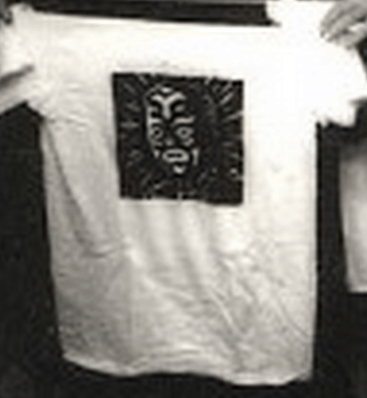
If you want to use the Ink Kitchen to share your story of how you got started in screenprinting or embroidery, write me at rick@theinkkitchen.com
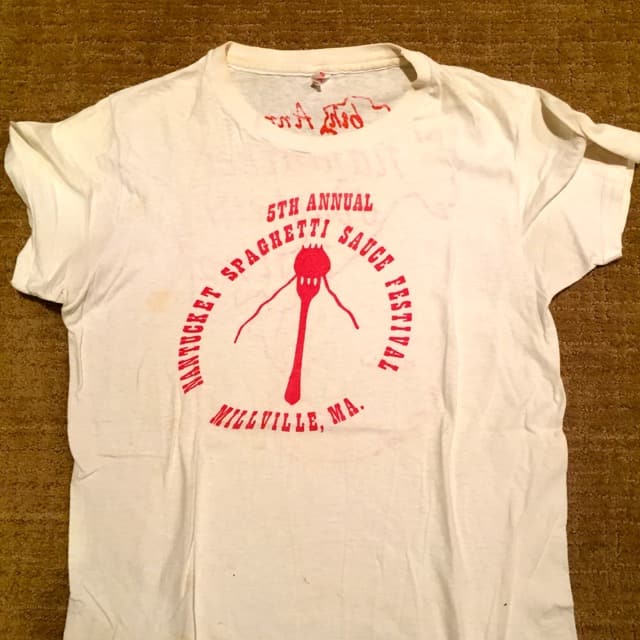
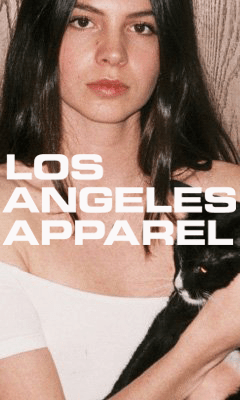
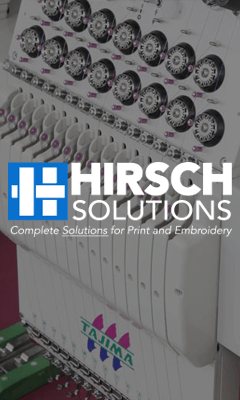
I still have my Ike and Tina shirt somewhere. Maybe Tarzan and Jane (Fonda) too. Love Ken Brown. Now I wish I had a shirt of his postcard scene of “The Moon Must Be in Klutz”.
Ricky, it was great to read this story of your beginnings. It’s like your progress embodies the saying “from tiny acorns, mighty oak trees grow”. (Not that I’m saying you started out as a nut or anything.)
Loved this trip down “memory lane”.
I’ll admit on the interntet that I stole a lot my dad’s original shirts because they were so soft and comfortable compared to modern shirts with thick ink on them,”
My friend and I were coming out of a Grateful Dead show I believe in Louisville Kentucky and this guy walked past us with a Steve and Idi shirt and without saying a word we just burst out laughing uncontrollably. I have been trying to find one on and off since then.
i paired a neon version of “Ike” with neon orange lifeguard shorts and wore it to college. I was asked to be on a makeover show.
Love my Steve and Idi shirt – and my Ike and Tina shirt.. thank you for making me smile!